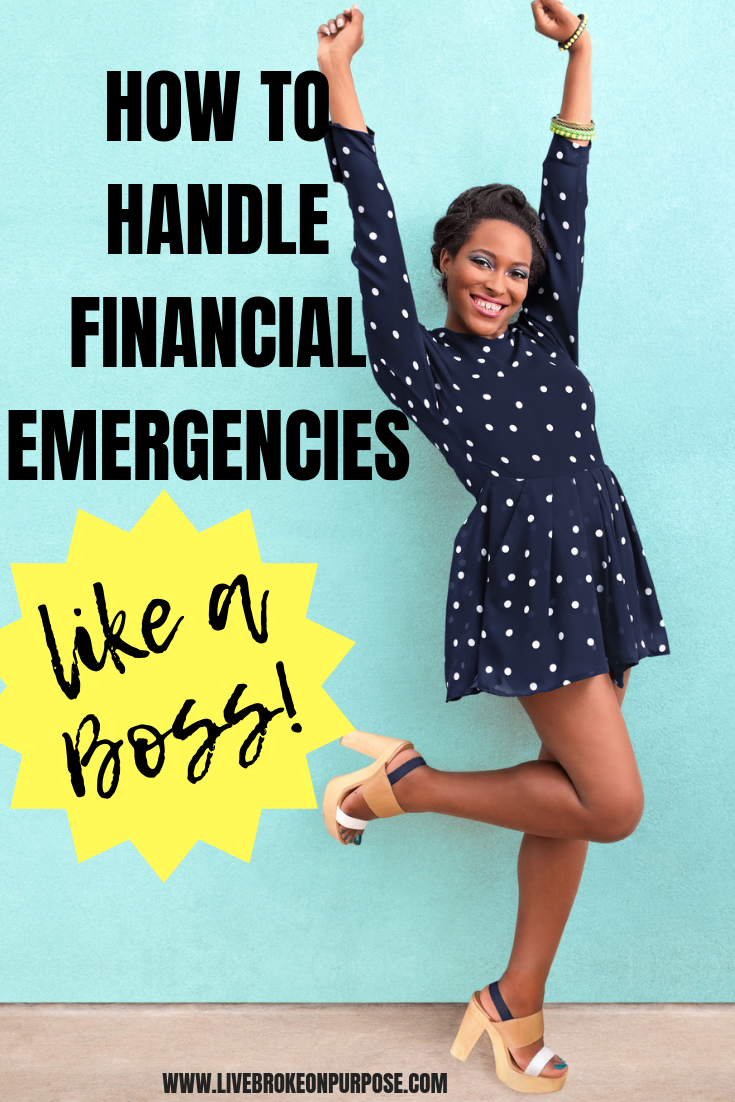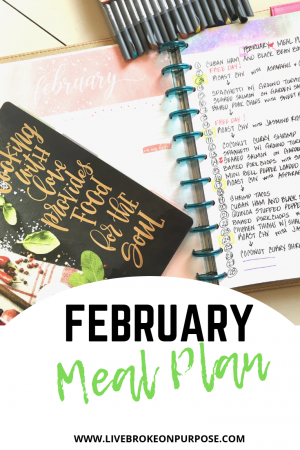
I love interacting with everyone on Facebook and Instagram, especially in the Instagram stories. Sometimes people send questions concerning their situations or ask us for advice. Often these questions are so good that I think “Man I wish I could answer this publicly,” but of course the question was asked in private for a reason, and so we keep it that way. Lately, I’ve seen a theme among the questions concerning how Marcus and I handle an emergency when it pops up. People want to know how we fit an emergency into our debt payoff plan. This is a GREAT question! It’s easy to get caught up in the intensity of wanting to demolish your debt that you forget about having an Emergency Fund in place.
We’ve talked about Emergency Funds on here before. You can check that out in this post, but basically, an “Emergency Fund” is what allows you to turn an emergency into a simple situation. Our emergency fund even gave me the confidence to tell my employer to take back my paycheck when the screwed up my pay.
Is an Emergency Fund different from a Savings Account?
Yes and No. An Emergency fund is a limited saving account that you only use in the case of an Emergency. I say it’s a “limited” savings account because before you start your Broke on Purpose Journey, you sit down and choose how much you want to put in there and once you reach that amount you stop. Some people may suggest you start with by saving $1000 which isn’t a bad place to start depending on your lifestyle and needs. However, if you’re like me and you’re a worry wort, it’s okay to keep more in your emergency fund. My rule of thumb is that the amount of money in your emergency fund should allow you to sleep peacefully at night.
The great thing about having this emergency fund in place is that when a true emergency arises such as your car breaking down or a visit to the hospital you can use that money to cover it. Once the crisis is over build the fund back up to the designated amount and keep pushing. You’re going to have setbacks. That’s normal. It’s called life. Just recently I told a Broke on Purpose Consultation Client that there are going to be months that are Amazing and months that are Meh, you have to keep pushing through the “meh’s so that you can get to another amazing.
Multiple Accounts
If you have room in your monthly budget, in addition to the emergency it’s also okay to have other savings accounts. Some people call these “sinking funds.” Marcus and I have a separate savings account to handle any pet cost as well as an account to take care of car repairs. We allocate a certain amount of money into these accounts every month and should something occur where we need the money we take from there instead of our Emergency Fund.
Don’t get discouraged by thinking you have to save a massive amount before you get started paying off your debt. Saving up $1000 may be easier to some than others. You can always start with $500 and slowly build your way to $1000 by using money from birthdays, bonus’ etc. No matter what make sure you have some type of emergency fund in place.





We are retired and find that we are having a hard time paying our bills. How can we start to pay down our debt?
Hi Patsy, the best way to start would to be to write out all your expenses and income and then from there sit down and do a budget. From that you can see what things you can afford to cut out or cut back on.